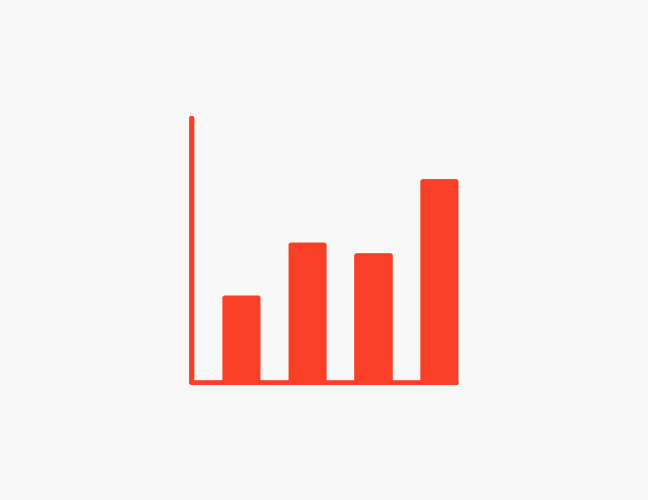Betting Exchange Guide: How It Works & Why It’s Changing Sports Betting


- Fact Checked by: PokerListings
- Last updated on: April 22, 2025 · 9 minutes to read
Betting exchange is a peer-to-peer betting site that opens new horizons for punters, allowing them to control their bets and find the best conditions to win. If you want to learn all about exchanges, understand how they work, how they differ from traditional bookmakers and what advantages they offer to punters, keep reading our detailed guide — we’ve prepared all essential information.
Understanding Betting Exchanges
If you want to try a different approach to sports betting and enjoy lower commissions and higher betting limits, you should definitely look into sports betting exchange sites.
By understanding how the peer-to-peer system works, you will be able to better control your bets, find the most favorable offers and use new tools to increase your chances of success.
What Is a Betting Exchange?
A betting exchange is an online platform where players can bet on sporting events with each other rather than with a bookmaker. This means that there is no traditional bookmaker setting odds and taking significant profit via margins. Instead, punters act as bookmakers themselves, offering and accepting bets from each other.
How Does a Betting Exchange Work?
On a betting exchange, players can bet ‘Yes’ or ‘No’ on a certain outcome. A ‘Yes’ bet is similar to a classic bookmaker’s order, where the player chooses an outcome and bets on it. A ‘No’ bet means that the player offers odds that a certain outcome will not happen. If another player agrees with these odds, a bet is made between them.
One of the key advantages of betting exchanges is the absence of margin, which allows punters to find higher odds on every bet. In addition, players can close their bets at any time, which is not always possible in classic bookmaker’s sites.
Betting exchanges are suitable for experienced players who are well versed in sporttrade and can effectively utilize unique betting opportunities offered by such platforms.
Exchange Bets: The Two Key Participants
There are two key players in betting exchanges: backers and layers. These terms define the role of each player in the betting process. In order to bet effectively on the exchange, it is necessary to clearly understand the difference between these player positions.
Backers
A backer is a sports bettor who makes a ‘Yes’ bet on a certain outcome. They choose an event and an outcome that they think will happen and bet on it.
The role of a backer is similar to standard punters who place bets on traditional sports betting sites, but on the exchange they interact directly with other players. The backer looks for suitable odds offered by another participant and makes a bet if the conditions are right for him. If the outcome is confirmed, the backer receives the winnings calculated on the basis of the odds and the bet amount, minus the exchange commission.
Layers
Layers are those who bet ‘No’ on a certain outcome or offer odds that a certain outcome will not happen. The bettor sets the odds and specifies the amount he is willing to risk. When another player agrees with the proposed odds, a bet is made between them. When the results are out and in favor of a layer, they receive winnings equal to the amount of bet by the other player, minus the exchange commission. If the outcome is in favor of backer, the layer loses the amount of their bet. In this way, layers take on the role of a traditional bookmaker, but without the risk for the exchange, as it is not directly involved in the payment of winnings.
Legality of Betting Exchanges in the US
The Federal Wire Act of 1961 makes things complicated in the United States as it banned the transmission of gambling information across state lines. Furthermore, betting regulations in the United States are carried out at the level of individual states, and so far betting exchanges are not widely spread, despite being recognized as a legal form of betting on sporting events. Fortunately, there are still several legal and safe platforms in the US that offer their users this type of betting experience.
Betting Exchange vs. Traditional Bookmakers
Betting exchanges and traditional sportsbooks represent two fundamentally different approaches to sports betting. The main differences between them lie in the way they operate and the opportunities they offer players. In the table below you can familiarize yourself with the distinctive characteristics of these two betting formats:
| Betting Exchange | Traditional Bookmakers |
|---|---|
| Betting against other people | Betting against the bookmaker |
| Odds are set by the punters | Odds are set by the sportsbook |
| Betting in ‘Yes’/’No’ format | Bets in ‘Yes’ format |
| The exchange charges a commission on winnings (1-5%) | The bookmaker sets the margin, which is 5-7% on average |
| Fewer bonus offers | Extensive bonus system |
These differences make betting exchanges attractive for those who want to have more control over their bets and wager with better odds. However, this format requires players to be more strategic and skilled than those they are betting against.
How Betting Exchanges Make Money (Commissions & Margins)
The main source of income for popular betting exchange sites is commissions. Unlike traditional bookmakers, US betting exchanges do not put a margin in the odds, but charge a fee on the winnings of their users. For example, if a user wins a bet on the exchange, the platform can deduct 1-5% of the winnings.
Margin is a hidden commission embedded in the betting odds. Although betting exchanges do not directly use margin, understanding this mechanism is important for analyzing competitive offers. By laying a margin, bookmakers lower the odds to guarantee themselves a profit regardless of the outcome of the event. Betting exchanges are a better option because when two customers bet against each other rather than against a bookmaker, it is possible to find odds that are much closer to the “true” probability of an event happening.
How Betting Exchanges Have Transformed the Industry
Betting exchanges have significantly changed the online betting industry as they have introduced new principles of operation and advantages for players. On an exchange platform, bettors can directly bet among themselves rather than against a bookmaker, making the process more transparent and flexible. The lack of margin in the odds results in more favorable bets for punters, as exchanges only charge a commission on winnings, usually between 1 and 5%.
This model also offers unlimited maximum betting options, allowing players to make large deals without the restrictions associated with a traditional sportsbook.
The growth of the US betting exchange market is also driving the analytical approach to placing bets. As punters are playing against each other, those who prepared better win noticeably more often. This leads fans to take analysis of past results, individual player performance and other metrics much more seriously.
Overall, peer-to-peer sports betting has changed the online sports betting industry, making it more flexible, transparent and profitable for players. Sports exchange platforms provide new opportunities for those who want to get the most out of their knowledge and use different strategies without restrictions.
Advantages of Betting Exchanges
Leading US betting exchanges offer a number of benefits that make them attractive to many punters. Here are some of them:
- Higher odds. Peer-to-peer sports betting exchanges often offer higher odds than bookmakers, as there is no need to take into account profit margins.
- More opportunities. Players can not only place bets but also act as bookmakers, offering odds on certain outcomes on different sports markets.
- Betting flexibility. Players can bet ‘Yes’ or ‘No’ on a desired outcome, which gives more betting opportunities and room for strategic planning.
- The ability to close a bet. Betting exchanges often offer a cash out feature, allowing punters to close their bets at any time to lock in profits or minimize losses.
- Transparency. Betting exchanges tend to be more transparent about commissions and terms and conditions, which helps punters better control their costs.
Disadvantages of Betting Exchanges
Despite the advantages, betting exchanges also have a few disadvantages to consider. Here are some of the key cons of this betting model:
- Commission. Even if an exchange commission is often lower than the margins of classic bookmakers, it still reduces potential winnings.
- Liquidity. An exchange bet can only be placed if there is a bettor on each side of the bet. Usually, punters have no problem betting on popular markets such as point spreads and totals in the NFL, but the same cannot be said for smaller sports. If the market lacks liquidity, it can be difficult for bettors to find bets with acceptable odds.
- Complexity. Peer-to-peer betting requires players to have a deeper understanding of the market and betting strategies, which can be difficult for beginners.
- Limited availability. Betting exchanges are not as widely available as traditional betting sites and may be limited in some states.
How to Choose the Right Betting Exchange Platform
If you have decided to try a new format of sports betting, choosing a reliable betting exchange is one of the key considerations. Here are some basic tips to help you choose the most suitable betting platform:

As you already know, betting exchange operators take commission on winning bets. Therefore, compare fees between the sites and choose the one that has the lowest.

Make sure the platform supports live betting if you want to make your sports betting experience more varied and interesting.

Check support options and response times to make sure you can get help when you need it.

Choose an exchange with high liquidity to ensure variety of options, reasonable odds and the possibility of large bets.

Make sure the betting exchange operates within the laws, has a good reputation and meets security standards to protect your personal and financial information.
Winning Strategies for Betting on Betting Exchanges
Exchange betting sites offer punters a wide range of betting opportunities, but to increase your chances of success, you need to apply various strategies wisely. Here are some of the most popular betting tactics used by bettors on the exchanges:
Trading on Odds Movements
Understanding how and why odds change can help bettors make more informed decisions and increase their profitability. Odds trading involves buying and selling bets to profit from changing odds. Players can anticipate which way the odds will move and adjust their bets accordingly. For example, if you expect the odds to rise, you can place a ‘No’ bet and then close it at a higher quote.
Arbitrage Betting
Arbitrage betting is a strategy that involves betting on all possible outcomes of an event on different platforms to guarantee a profit regardless of the outcome. Arbitrage betting is particularly attractive on exchange sports betting sites as they do not block accounts for such actions, unlike traditional bookmakers.
Market Selection & Odds Analysis
Market selection and odds analysis is also a very successful strategy. Players should carefully study the US sports markets and odds to find the most favorable offers. This includes monitoring cash flows and odds changes to anticipate the most likely outcome and bet with the best possible return. This strategy is probably the most time-consuming and complex. However, the use of specialized services and betting tools to track odds and cash flows can significantly improve its effectiveness.
Using a Betting Exchange Outside the US
The use of betting exchanges outside the United States is legal and popular in many regions, especially in Europe. In the UK, Germany, France, Italy and other European countries, betting exchanges are fully legalized and regulated by local authorities. For example, in the UK, a dedicated Gambling Commission is responsible for issuing licenses and controlling betting companies, including betting exchanges. In Europe, betting exchanges sites like Betfair are widely popular with punters.
In other parts of the world, such as Asia and Africa, the situation with betting laws is more complicated. In some countries, such as Singapore, betting exchange may be allowed on certain sites, while in Kenya and Nigeria online betting is legalized but the market is subject to strict controls and taxation.
The Future of Betting Exchange Platforms (Trends & Predictions)
The future of betting exchanges promises significant changes. Here are the top trends and predictions:
- Technology integration. One of the key areas of development for betting exchanges is the integration of artificial intelligence (AI) and blockchain. AI will be used to personalize offers, analyze player behavior and predict the outcome of events, which will make betting more informed and efficient. Blockchain, in turn, will provide transparency and security of payments.
- Expansion of markets. The sports betting market will continue to grow due to increased legalization and regulation of betting exchanges in many countries. This will allow such platforms to reach a wider audience and offer more diverse betting markets. The growing popularity of cybersports and in-game betting will also boost the industry by attracting younger players and expanding the customer base.
- Increased security and safety. The future of betting exchanges will also be characterized by increased security through the enhanced encryption and introduction of tools for responsible betting. This approach will help to reduce the risks of data leakage and addiction, thus increasing trust in the industry.
Overall, the future of betting exchanges looks promising, with the potential for significant growth.
Exchange Betting FAQs
Is exchange betting legal in the USA?
Yes. Exchange betting is legal nationwide, but the types of exchanges that are available in any given state vary based on local laws.
What is the best betting exchange USA bettors can use?
Prophet exchange is the first exchange platform for winning sports bettors, as it is available in more states than other exchanges and has enough liquidity to support a diverse array of US sports betting options.
Why weren’t there betting exchanges in the United States?
The primary reason for the absence of betting exchanges in the US in the past lies in the complex regulatory landscape. Each state has its own set of gambling regulations, and many of them have been slow to adapt to the latest betting formats.
Why are betting exchanges gaining popularity?
Betting exchanges provide opportunities to find better odds and boast lower commissions compared to the margins of classic bookmakers.
How much commission do betting exchanges charge?
Betting exchanges usually charge a commission of between 1 and 5% of the winnings, allowing users to get the most out of their bets.
